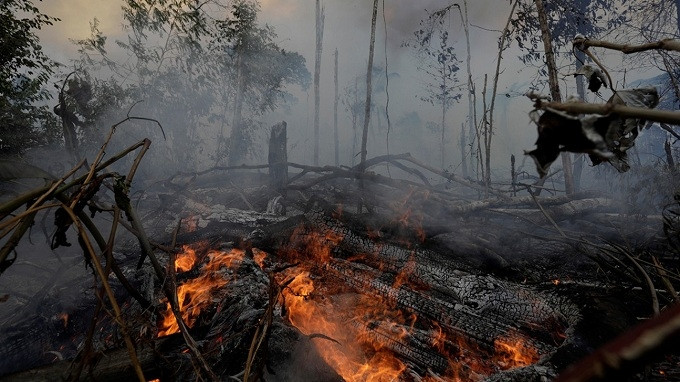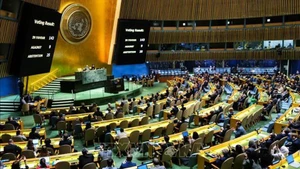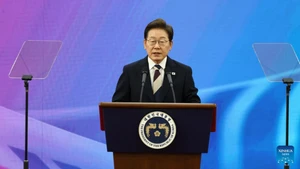Covering an area of approximately 5.5 million square kilometres in South America, the Amazon is the largest tropical rainforest in the world and plays an important role in the fight against climate change, while supplying about 20% of the oxygen on Earth. Originating from small fires in early August 2019 in Brazil’s forest area, the fires have been rapidly spreading and become more intense over recent weeks. The fires have increased alarmingly, devastating nearly two million hectares of rainforest in Brazil, Bolivia, Paraguay and Peru, and severely impacting the environment as well as flora and fauna in the Amazon region. Smoke from wildfires is fully covering Sao Paulo and some other Brazilian cities, despite being thousands of kilometres away.
To put out the fire, Brazil has mobilised about 44,000 soldiers and Hercules C-130 military transport aircraft, and Bolivia has rented the Boeing 747 Supertanker, the largest fire-fighting aircraft of the United States, as well. Meanwhile, Paraguay has provided tens of thousands of litres of fuel to help people erect fire-stop barriers. However, such efforts have proved still not enough to prevent the outbreak of thousands of new fires.
Undeniably, part of the reason comes from the natural factors, when the dry season is a time for the regular outbreak of forest fires, adding to the increasingly harsh impacts of climate change causing the dry and hot weather and droughts. However, according to the International Tropical Timber Organisation (ITTO), the main reason stems from the carelessness of the people during the process of agricultural cultivation. Holding up to 60% of the Amazon rainforest, Brazil is in the middle of harsh criticism, because of its lax regulations on environmental protection and the booming of logging and deforestation activities for farming.
According to the Brazilian National Institute for Space Research (INPE), so far this year nearly 80,000 fires have been recorded in the country’s vast forests, of which more than half are in the Amazon rainforest, a year-on-year increase of 85% and a record high since 2013. In July alone, the deforested Amazon area in Brazil was four times higher than the same period last year. However, the aforementioned figures have been rejected by Brazilian President Jair Bolsonaro.
Rising beyond the scope of a natural disaster, the wildfires in the Ammon have become an “excuse” for the parties to blame each other in dealing with common challenges. At the recent Summit of the Group of Seven (G7) in France, the G7 members agreed to spend EUR20 million for the Amazon rainforest, which will be mainly used to send aircraft to control the fires and serve reforestation in the medium term. French President Emmanuel Macron emphasised that the Amazon wildfires are an “international crisis” and threatens to block a new trade agreement between the European Union (EU) and the South American Common Market (Mercosur), unless Brazilian President Bolsonaro takes appropriate action to protect the Amazon.
In his response, Brazilian President Bolsonaro said that the Amazon issue is no business of the countries halfway around the world away, but an internal problem of Brazil and other countries in the region. The Brazilian leader stressed that the Amazon wildfires were due to increase droughts, accusing the activist groups and non-governmental organizations of “stirring up the environmental concerns”, causing confusion among the public opinion and affecting Brazil’s economic benefits. The Brazilian government confirmed that it will only accept foreign aids to “save” the Amazon if it can actively control the ways in which aid packages are used.
Evolving beyond a mere natural disaster in South America, the heat from the Amazon also sends a warning about the endangered environment that requires joint actions to address. Wildfires breaking out in Africa and in many parts of the world could be even more serious in the Amazon. Therefore, in order to jointly handle the environmental crisis, countries need to solve the problem of “lack of trust”, along with raising the awareness and responsibility among the people.
















